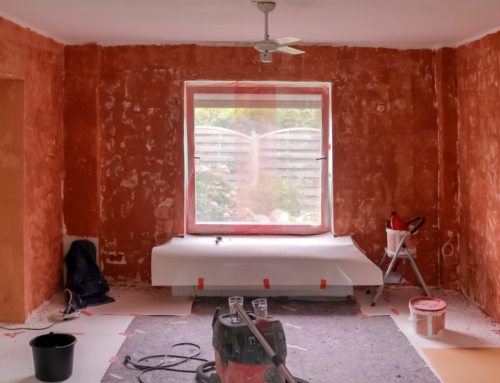Becoming a landlord can be an exciting venture. However, it’s important to be aware of the common mistakes that new landlords often make. By understanding these pitfalls, you can avoid costly and time-consuming errors that could negatively impact your rental property business. In this article, we will discuss the top 5 mistakes new landlords make and provide practical tips on how to avoid them.
- Failing to Screen Tenants Thoroughly
Screening tenants is a crucial step in the rental process. Many new landlords make the mistake of not conducting thorough background checks on potential tenants. This can lead to problems such as late rent payments, property damage, or even eviction. To avoid this mistake, consider implementing the following:
-Credit Checks: Requesting a credit report can give you insights into a tenant’s financial responsibility.
-Background Checks: Verify employment, rental history, and conduct criminal background checks to ensure you choose reliable tenants.
-References: Contact previous landlords to gather information about a prospective tenant’s behavior and reliability.
Remember, thorough tenant screening is essential to minimize risks and protect your investment.
- Neglecting Property Maintenance
Maintaining your rental property is crucial for tenant satisfaction and long-term profitability. Neglecting property maintenance is a common mistake made by new landlords. Failing to address maintenance issues promptly can lead to tenant complaints and potential legal problems. Here’s what you can do:
-Regular Inspections: Schedule routine inspections to identify any maintenance or repair needs.
-Prompt Repairs: Address maintenance issues promptly to ensure tenant comfort and prevent further damage.
-Establish Relationships with Contractors: Find reliable contractors for repairs and maintenance tasks to ensure timely and quality work.
By prioritizing property maintenance, you can provide a pleasant living experience for tenants and protect the value of your investment.
- Setting Incorrect Rental Rates
New landlords often struggle with setting appropriate rental rates. Charging too much can deter potential tenants, while charging too little may result in lost income. To avoid this mistake, consider the following strategies:
-Market Research: Conduct thorough market research to understand the rental rates in your area. Take into account factors such as location, amenities, and property size.
-Consider Expenses: Calculate all expenses, including mortgage payments, property taxes, insurance, maintenance costs, and vacancies. Ensure that the rental rate covers these expenses while providing a reasonable return on investment.
By setting the correct rental rate, you can attract quality tenants and maximize your rental income.
- Insufficient Knowledge of Landlord-Tenant Laws
Lack of knowledge about landlord-tenant laws is a common mistake made by new landlords. Each jurisdiction has specific regulations that govern landlord-tenant relationships, including eviction processes, security deposit handling, and lease agreements. Avoid legal troubles by taking these steps:
-Educate Yourself: Familiarize yourself with local laws and regulations governing rental properties. Consult legal resources or seek advice from professionals if needed.
-Proper Documentation: Use legally sound lease agreements and ensure they comply with local regulations.
-Stay Updated: Keep yourself informed about any changes in the laws that may affect your rental property business.
By understanding and following the applicable laws, you can protect yourself and your tenants from unnecessary disputes or legal complications.
- Inadequate Financial Planning
Financial planning is crucial for new landlords. Many make the mistake of underestimating expenses or failing to allocate sufficient funds for emergencies. Avoid this pitfall by considering the following:
-Budgeting: Create a detailed budget that includes all expenses related to your rental property. Consider vacancies, repairs, insurance, property management fees, and property taxes.
-Emergency Fund: Set aside a portion of your rental income for an emergency fund. This will help cover unexpected expenses or periods of vacancy.
-Insurance Coverage: Obtain appropriate insurance coverage for your rental property to protect against potential risks or damages.
-Accounting and Bookkeeping: Maintain accurate records of income and expenses to ensure financial stability and facilitate tax filings.
By implementing effective financial planning strategies, you can avoid financial hardships and ensure the long-term success of your rental property business.
Frequently Asked Questions (FAQs)
FAQ: Can I skip tenant screening if I have a good feeling about a potential tenant?
Answer: No, it’s essential to conduct thorough tenant screening for all applicants. Relying solely on intuition or a good feeling can lead to problems later on. Screening helps mitigate risks and ensure you choose reliable tenants.
FAQ: Should I always hire a property management company?
Answer: Hiring a property management company is a personal decision. While it can provide convenience and professional expertise, it also comes with additional costs. Consider factors such as property size, location, your availability, and your comfort level with property management tasks before making a decision.
FAQ: What should I include in a lease agreement?
Answer: A lease agreement should include details such as rent amount, lease term, payment due dates, responsibilities of both landlord and tenant, pet policies, and any additional rules or restrictions. Consult local regulations and seek legal advice to ensure your lease agreement is comprehensive and legally binding.
FAQ: How do I handle late rent payments?
Answer: Establish a clear late rent policy in your lease agreement, including any late fees or penalties. Communicate with the tenant promptly if rent is late, and follow the legal eviction process if necessary. It’s important to be consistent and enforce the terms of the lease agreement.
FAQ: Can I use the security deposit to cover unpaid rent?
Answer: In most cases, security deposits are meant to cover damages beyond normal wear and tear. Unpaid rent should be pursued separately through the appropriate legal channels. Familiarize yourself with local laws regarding security deposits and rent collection to ensure compliance.
Becoming a successful landlord requires careful planning, attention to detail, and a commitment to learning and adapting. By avoiding the top 5 mistakes new landlords make, such as insufficient tenant screening, neglecting property maintenance, setting incorrect rental rates, lacking knowledge of landlord-tenant laws, and inadequate financial planning, you can lay a solid foundation for a profitable and sustainable rental property business. Remember, continuous education, thorough research, and proactive management are key to avoiding pitfalls and maximising returns on your investment.
If you’re looking for a top-tier property manager that ticks all the right boxes, why not give HYPE Lettings a try? We pride ourselves on our exceptional communication, local knowledge, and tech-savvy approach to property management. Our team is dedicated to providing a professional, friendly, and efficient service that will leave you grinning from ear to ear. So, if you’re ready to experience the HYPE Lettings difference, get in touch with us today at www.hypelettings.co.uk or give us a ring at 01782930077. We can’t wait to show you what we can do for your property!













